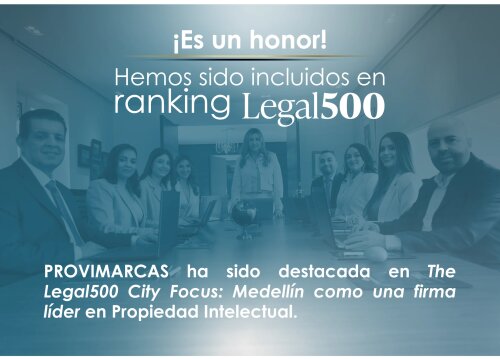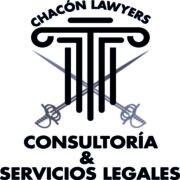Best Sanctions & Export Controls Lawyers in Bogota
Share your needs with us, get contacted by law firms.
Free. Takes 2 min.
List of the best lawyers in Bogota, Colombia
About Sanctions & Export Controls Law in Bogota, Colombia
Sanctions and export controls law in Bogota, Colombia governs how individuals and businesses can engage in international trade, including the exchange of goods, services, and technology with other countries. Sanctions refer to government-imposed restrictions designed to achieve foreign policy or national security objectives, usually by limiting trade with certain countries, entities, or individuals. Export controls regulate what can be shipped out of Colombia, especially items that may pose security risks, are considered dual-use (civilian and military applications), or are subject to international agreements. These laws not only reflect Colombia’s own policies but also its obligations under international law and multilateral agreements. Non-compliance can result in significant legal consequences, such as fines, criminal liability, and reputational damage.
Why You May Need a Lawyer
Navigating sanctions and export controls in Bogota can be challenging due to the complexity and frequent updates to regulations. You may need a lawyer to:
- Determine if your business transactions or exports are restricted or require licenses
- Respond to investigations or enforcement actions initiated by Colombian authorities
- Develop internal compliance programs to avoid accidental violations
- Obtain guidance on handling goods, services, or technologies with potential military or dual-use applications
- Understand the impact of new or amended international sanctions imposed by the United Nations, United States, or European Union
- Appeal fines or penalties related to violations
- Negotiate with Colombian authorities regarding licensing or compliance matters
Local Laws Overview
Several government bodies play a crucial role in enforcing sanctions and export controls in Colombia. The Ministry of Commerce, Industry and Tourism (Ministerio de Comercio, Industria y Turismo - MINCIT) oversees export licensing and regulations. The Colombian Customs Authority (Dirección de Impuestos y Aduanas Nacionales - DIAN) implements border controls and inspections. The Ministry of Foreign Affairs may also be involved, especially regarding multilateral sanctions.
Key aspects include:
- Mandatory licensing for certain exports, especially in sensitive sectors (arms, dual-use goods, certain chemicals, and technology)
- Prohibition of trade with individuals or entities listed on Colombian or international sanctions lists
- Strict reporting and documentation requirements for exporting products subject to control
- Severe enforcement measures, including confiscation of goods, administrative penalties, and criminal prosecution for intentional violations
- Obligations to report suspicious activities that may relate to money laundering, terrorism financing, or sanctions evasion
Frequently Asked Questions
What is the difference between sanctions and export controls?
Sanctions are restrictive measures targeting specific countries, entities, or individuals for reasons such as security, diplomacy, or compliance with international law. Export controls regulate the movement of specific goods, services, or technologies out of Colombia, usually for security reasons.
How do I know if my products require an export license in Bogota?
You should review the lists published by MINCIT and check if your goods are subject to export control. A Colombian lawyer can help clarify your obligations based on the specific product and destination country.
Are there penalties for violating sanctions or export control laws in Colombia?
Yes, violations can result in substantial fines, confiscation of goods, loss of export privileges, and even criminal charges depending on the severity and intent.
Which governmental bodies enforce these laws in Colombia?
Key authorities include MINCIT for export licensing, DIAN for customs enforcement, and the Ministry of Foreign Affairs for international sanctions compliance.
Can I appeal a decision or penalty related to export controls?
Yes, Colombian law provides mechanisms for administrative and, if necessary, judicial appeals. Seeking legal advice promptly is important to protect your rights.
Do Colombian sanctions apply to foreign subsidiaries or only Colombian entities?
Colombian sanctions generally apply to legal entities and citizens operating within Colombia. However, the specifics can vary, and extra-territorial reach may be an issue with international sanctions.
What are dual-use goods, and why are they important?
Dual-use goods are items that can be used for both civilian and military purposes. These are strictly regulated under Colombian law and usually require special licenses for export.
What should I do if I discover that my company may have violated sanctions laws?
Act quickly by suspending the relevant transactions, investigating the situation, and seeking specialized legal counsel. Self-reporting to authorities may be advisable, depending on the circumstances.
How often are sanctions and export controls lists updated in Colombia?
Lists can be updated frequently, especially in response to international events. Companies should regularly review official sources and adapt compliance procedures accordingly.
How can I implement an effective compliance program for export controls?
Develop clear internal policies, train staff regularly, monitor transactions, and conduct periodic audits. Consulting a legal professional experienced in this area will help tailor the program to your business.
Additional Resources
If you need further information or assistance regarding sanctions and export controls in Bogota, the following resources may be helpful:
- Ministry of Commerce, Industry and Tourism (MINCIT): Responsible for export regulation and licensing
- Dirección de Impuestos y Aduanas Nacionales (DIAN): Customs authority overseeing compliance at borders
- Ministry of Foreign Affairs: Provides updates on international sanctions and diplomatic measures
- Supersociedades (Superintendence of Companies): Guidance on corporate compliance and risk management
- Colombian Chambers of Commerce: Local business support and training on compliance matters
Next Steps
If you believe you require legal assistance with sanctions and export controls in Bogota, Colombia, consider the following steps:
- Document your situation in detail, including products, transactions, and parties involved
- Contact a qualified Colombian attorney specializing in trade compliance or international law
- Prepare all relevant documentation for review, such as export records, contracts, and correspondence
- Discuss your compliance history and any prior issues with your legal advisor
- Ensure continued compliance while your case is reviewed, avoiding high-risk transactions
- Follow your lawyer’s advice regarding interactions with authorities or counterparties
Sanctions and export controls law is a constantly evolving and complex field. By taking timely legal action and accessing available resources, you can better protect your business and interests in Bogota, Colombia.
Lawzana helps you find the best lawyers and law firms in Bogota through a curated and pre-screened list of qualified legal professionals. Our platform offers rankings and detailed profiles of attorneys and law firms, allowing you to compare based on practice areas, including Sanctions & Export Controls, experience, and client feedback.
Each profile includes a description of the firm's areas of practice, client reviews, team members and partners, year of establishment, spoken languages, office locations, contact information, social media presence, and any published articles or resources. Most firms on our platform speak English and are experienced in both local and international legal matters.
Get a quote from top-rated law firms in Bogota, Colombia — quickly, securely, and without unnecessary hassle.
Disclaimer:
The information provided on this page is for general informational purposes only and does not constitute legal advice. While we strive to ensure the accuracy and relevance of the content, legal information may change over time, and interpretations of the law can vary. You should always consult with a qualified legal professional for advice specific to your situation.
We disclaim all liability for actions taken or not taken based on the content of this page. If you believe any information is incorrect or outdated, please contact us, and we will review and update it where appropriate.















